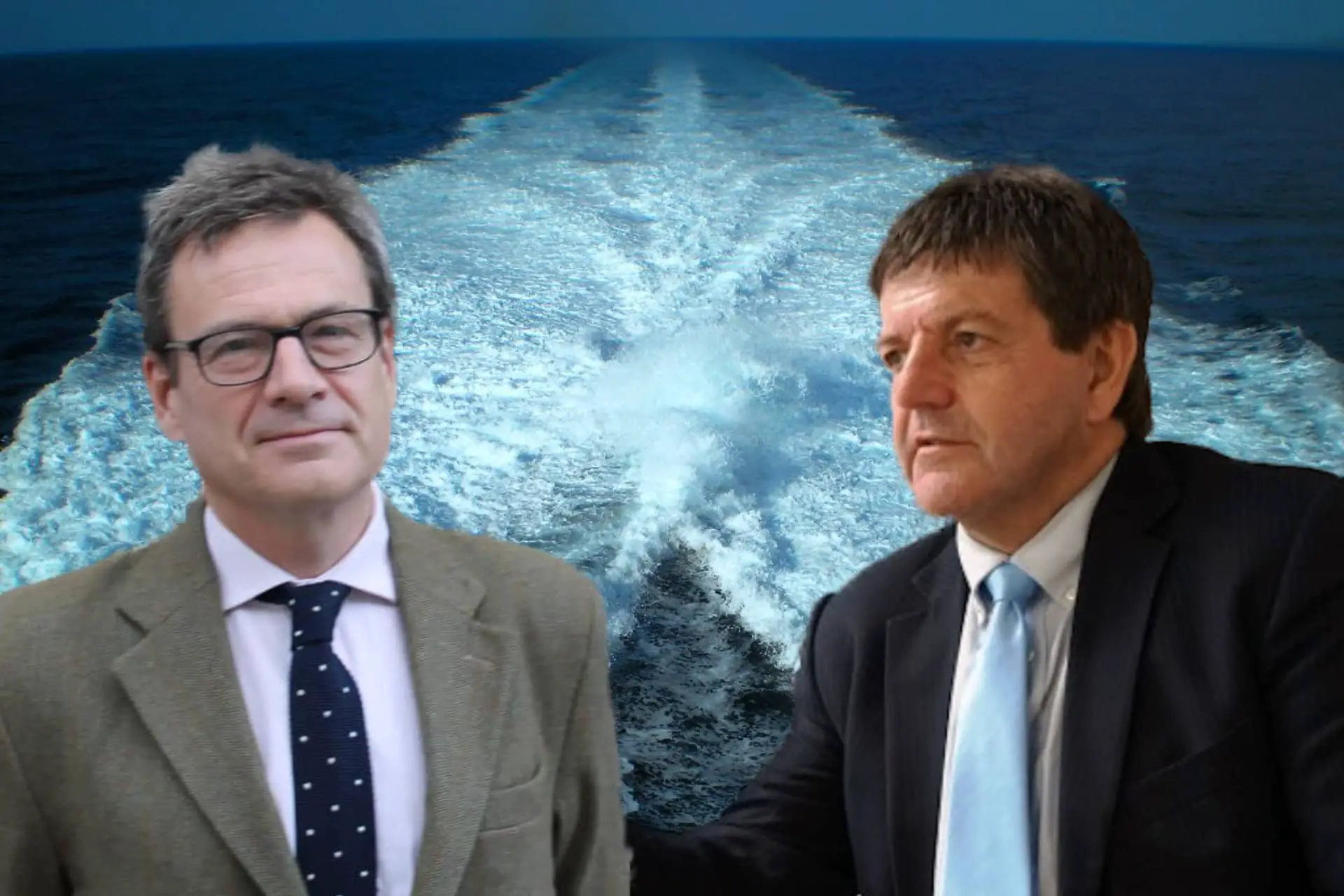A major, independent review of UK transport connectivity – commissioned by the Prime Minister – should examine how travel between the Isle of Wight and the mainland could be improved, according to the Isle of Wight and the Council Leader.
In a joint submission to the Union Connectivity Review – which is being led by government adviser Sir Peter Hendy CBE – Isle of Wight Conservative MP, Bob Seely and Council Leader, Dave Stewart, have highlighted the “uniquely disadvantageous” position the Isle of Wight faces when compared to islands in other parts of the United Kingdom.
“We should not return to the ‘old normal'”
In their detailed response, they outline the shortcomings of the current set-up of cross-Solent connectivity – and cite the impact of Coronavirus as bringing these issues to a head.
Describing the pandemic intervention (with specific legislation and funding for existing ferry operations) as a “watershed moment”, Mr Seely and Cllr Stewart have made clear that we should not return to the “old normal”.
Seely: Need a more sustainable and public-orientated approach
Mr Seely said,
“We must work towards a more sustainable and public-orientated approach in the future, which has proper regard for the essential / lifeline nature of these crossings.
“With the railways now transitioning – post-pandemic – to a new, more accountable operational model, we should look to do the same with our ferry services.”
The submission makes clear that Islanders need reliable and affordable cross-Solent connections to access healthcare, work and education – particularly as the community recovers from the effects of the pandemic.
Mr Seely went on to say,
“Our connectivity to the mainland is currently entirely at the discretion of unregulated, privately-owned operators who are ultimately not formally answerable for their operational decisions to anyone but their shareholders. Islanders cannot rely on the ferries being there to provide lifeline services. This needs to change. We need intervention.
“Whilst our submission sets out the current shortcomings, and suggests some potential ways forward, we are asking Sir Peter – as part of his wider review – to look in detail at how a new regulatory and governance model could be put in place, with subsidies and public service obligations, as necessary.”
Stewart: No real obligation to keep routes operating
Cllr Stewart added,
“The Coronavirus pandemic has shown us just how important it is to ensure our lifeline ferry services remain open for the transportation of food, medicine and movement of key workers.
“I am grateful to the ferry companies for working with the Council to keep routes operating during the height of the pandemic, but I am concerned that they have no real obligation to do so. There have been times over the past nine months where services have been vastly reduced or stopped, which has caused much distress to Islanders.
“Through this submission, we have also reinforced the case for a funding settlement which recognises the additional costs of providing public services on an island separated by sea. Over many years, governments of all colours (Labour, Coalition and Conservative) have shied away from tackling the issues we have highlighted. As we start to emerge from the pandemic, there is now the opportunity to look afresh at what could be done.”
Recommendations
The submission suggests that there are two main ways to tackle the current situation:
1) To make (a) funding available for a new regulatory and governance model for existing cross-Solent connectivity (with subsidies and public service obligations, where needed, to ensure minimum levels of service); and (b) appropriate, additional funding available to ensure that the provision of public services on the Isle of Wight is equal to that enjoyed on the mainland.
2) To continue with the arrangements set out in (1) above, unless the case is made (and funding made available) for constructing a fixed link between mainland England and the Isle of Wight – and then adjusting the ongoing funding model accordingly once such a fixed link was in place.
Fixed link “likely to be” too expensive
Mr Seely and Cllr Stewart conclude their submission by saying that,
“We consider that, on balance, the expenditure required to establish a fixed link between mainland England and the Isle of Wight would likely be far in excess of the costs involved with making a meaningful intervention in existing cross-Solent connectivity and providing additional funding available for public services, even over many years.
“On this basis, our preference would be to see above (1) as the best way forward to significantly improve cross-Solent connectivity and help level up the Isle of Wight’s economy and prosperity with neighbouring parts of the mainland, whilst maintaining its distinctiveness and unique character.”
See the response of ferry companies to the submission.
Article edit
10.45am 8th Jan 2021 – Letter embedded
News shared by the office of Isle of Wight Conservative MP, Robert Seely, in their own words. Ed





